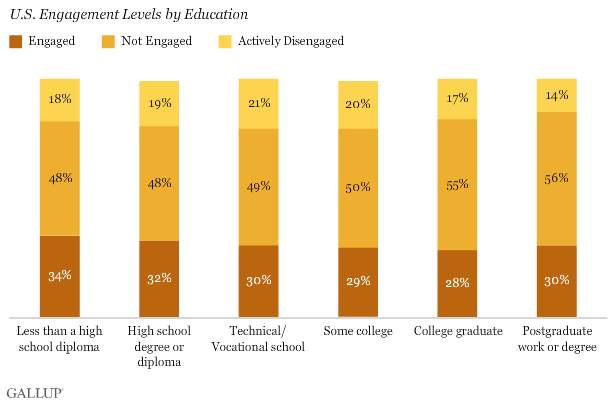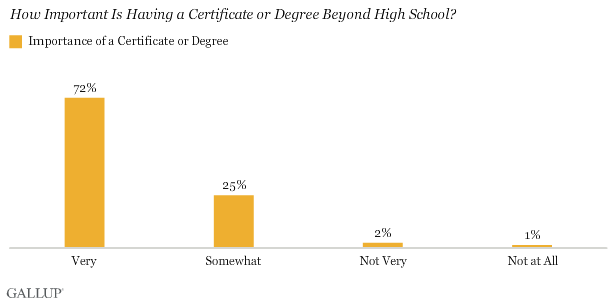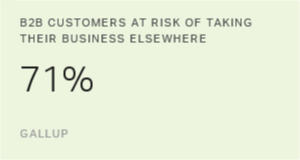People who invested time and money in a degree may have higher expectations for their managers and workplaces.
A college degree can do a lot of things -- such as improving job prospects and increasing lifetime earnings -- but it doesn't guarantee engagement at work. In fact, people with a high school diploma or less are slightly more likely to be engaged in their work than those with a college degree, according to Gallup Daily tracking.

These findings come at a time when U.S. educational attainment is at an all-time high. One-third of Americans aged 25 to 29 currently hold a bachelor's degree, according to a 2012 Pew Research Center report. This number is up from 28% in 2006, reflecting Americans' strong conviction that a college education is necessary to succeed in life. In a 2012 study conducted by Gallup and the Lumina Foundation, more than seven in 10 Americans said it is "very important" to have a certificate or degree beyond high school.

Nearly all respondents in the Gallup/Lumina Foundation study (96%) said that a college education is either very important or somewhat important to getting a good job. The same number said that a college degree is either somewhat or very important to earning more money. While Americans agree on these points nearly universally, it appears that employees who have jobs most associated with a college degree are no more likely than anybody else to report having a positive, engaging workplace.
College-educated employees may have higher expectations
Although there's only a six-percentage-point difference in engagement between people with less than a high school diploma (34% engaged) and those with a college degree (28% engaged), given the large sample sizes, these findings are significant -- but perhaps not surprising. Maybe high unemployment rates have led people without a high school degree to count themselves lucky to have a job at all. On the other hand, people who invested time and money in a degree may have higher expectations for their managers and workplaces -- expectations that often go unmet.
Brandon Busteed, executive director of Gallup Education, blames colleges for not encouraging students to develop their strengths. "The key driver of college graduates being less engaged is that they are much less likely than everyone else to say they have an opportunity to 'do what they do best every day,'" Busteed says. "Something about college isn't working -- it appears it doesn't do a good enough job of bringing students closer to figuring out what they are best at."
Whatever the case, the data also show that people with a high school diploma likewise have slightly higher employee engagement than those with a college degree. And employees with a postgraduate degree have engagement levels on par with those who have technical or vocational training.
Researchers did find that employees with higher levels of education were slightly less likely to be actively disengaged than those with a high school diploma, technical/vocation training, or some college. This finding suggests that a college degree may allow workers to avoid becoming trapped in a bad job by providing more employment options and allowing them to be more selective in the work they choose.
How leaders must motivate college grads
While an educated workforce is supposed to bring benefits to the U.S. economy, employers seem to be doing too little to engage this influx of college graduates in their workplaces. Leaders must do more to learn about these employees' specific needs and expectations to develop targeted, measurable plans of action that tie to organizational objectives. And managers can capitalize on their educated workers' knowledge by letting them take an active role in their own engagement.
Most U.S. companies are missing a pivotal opportunity to reap the benefits of the brain gain that the U.S. workforce is currently providing. It's not enough just to hire more college graduates. Employers must concentrate on engaging these employees to ensure that they are maximizing the investment into their potential.
